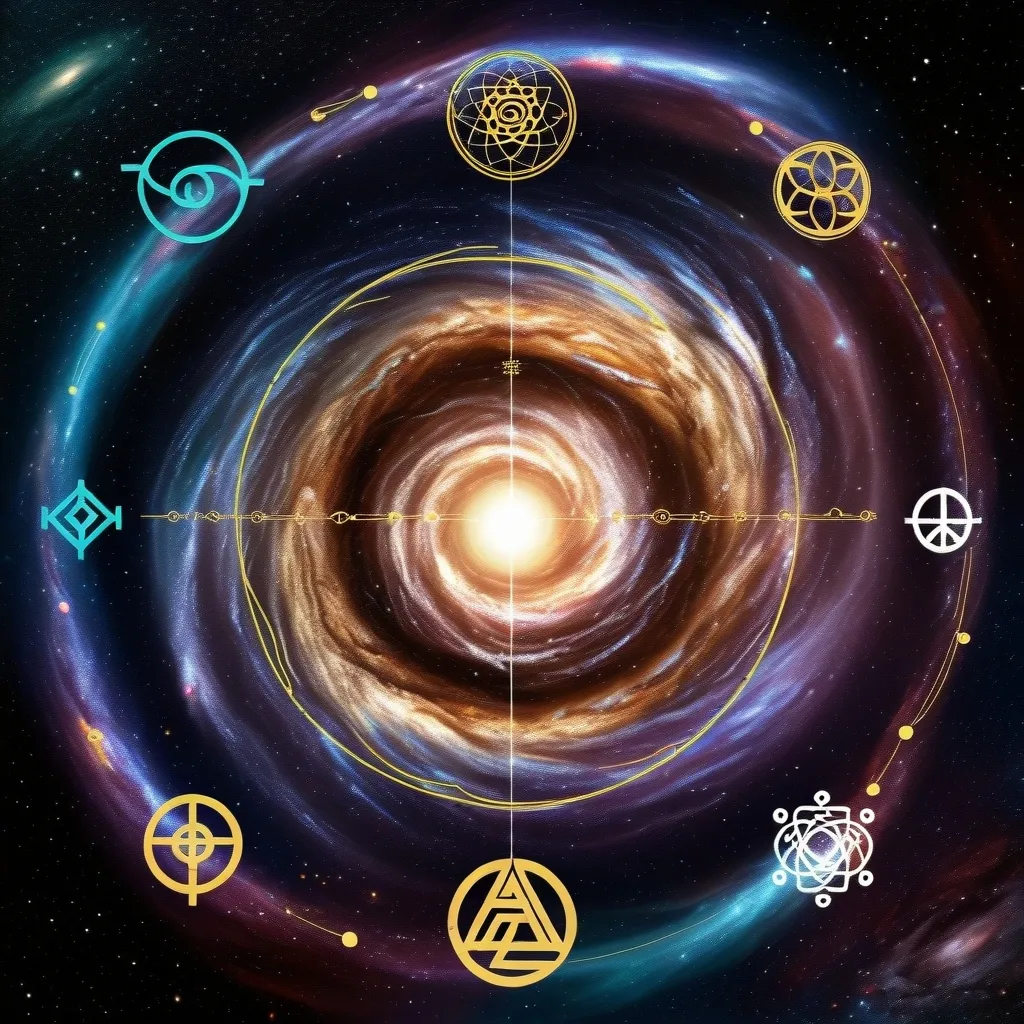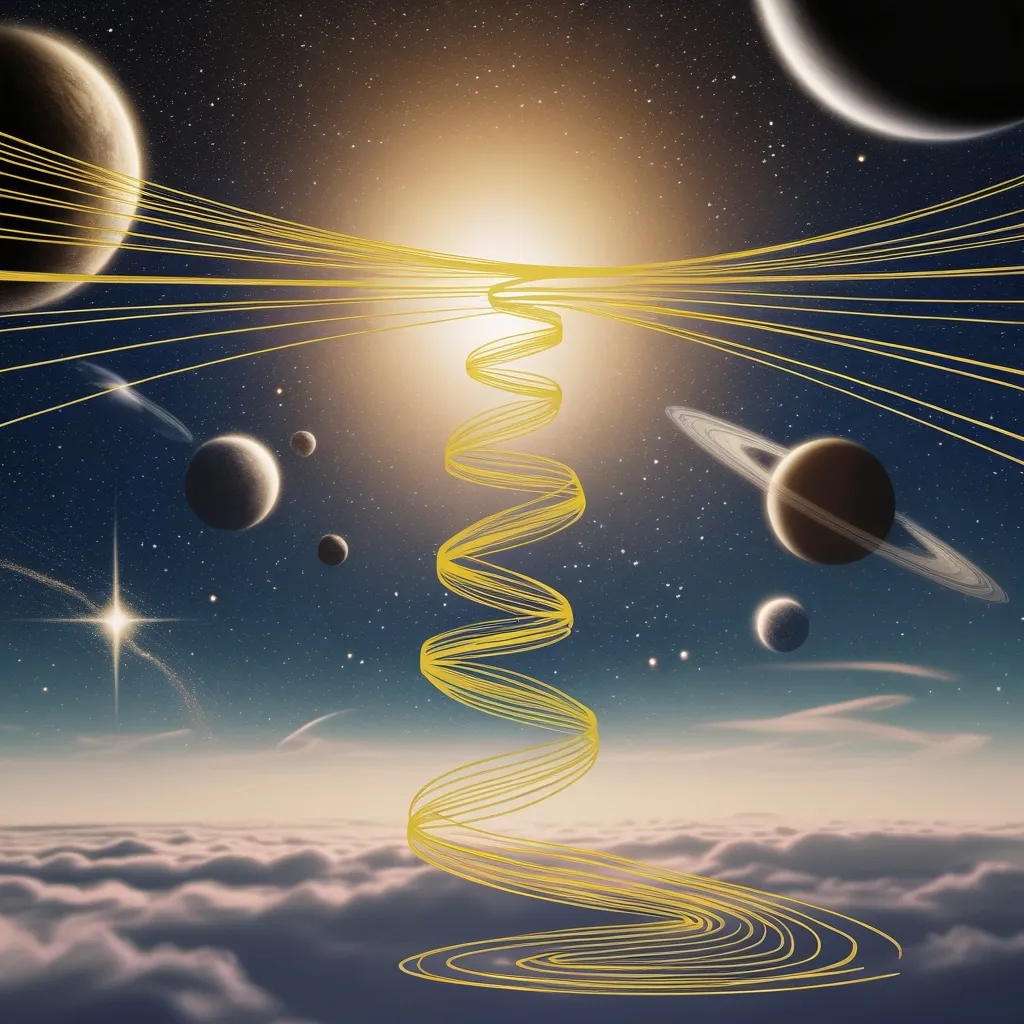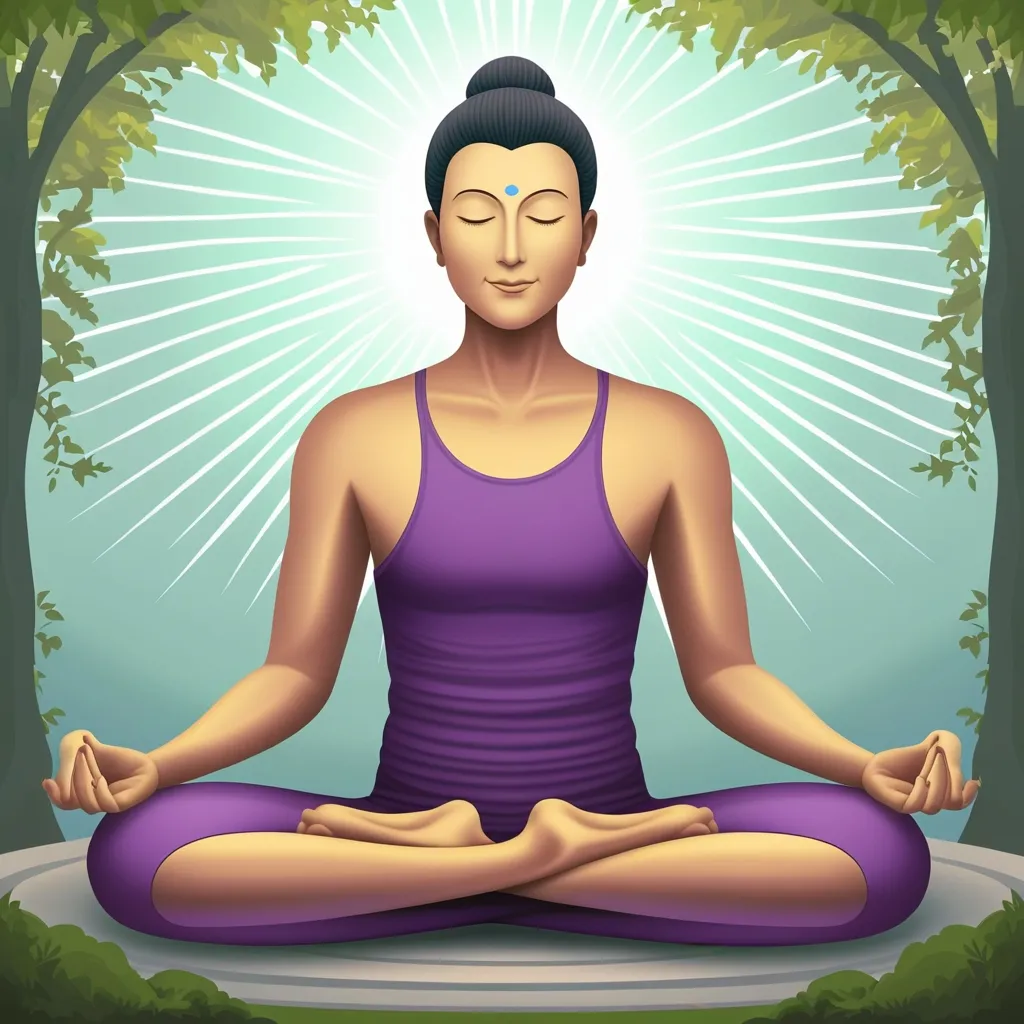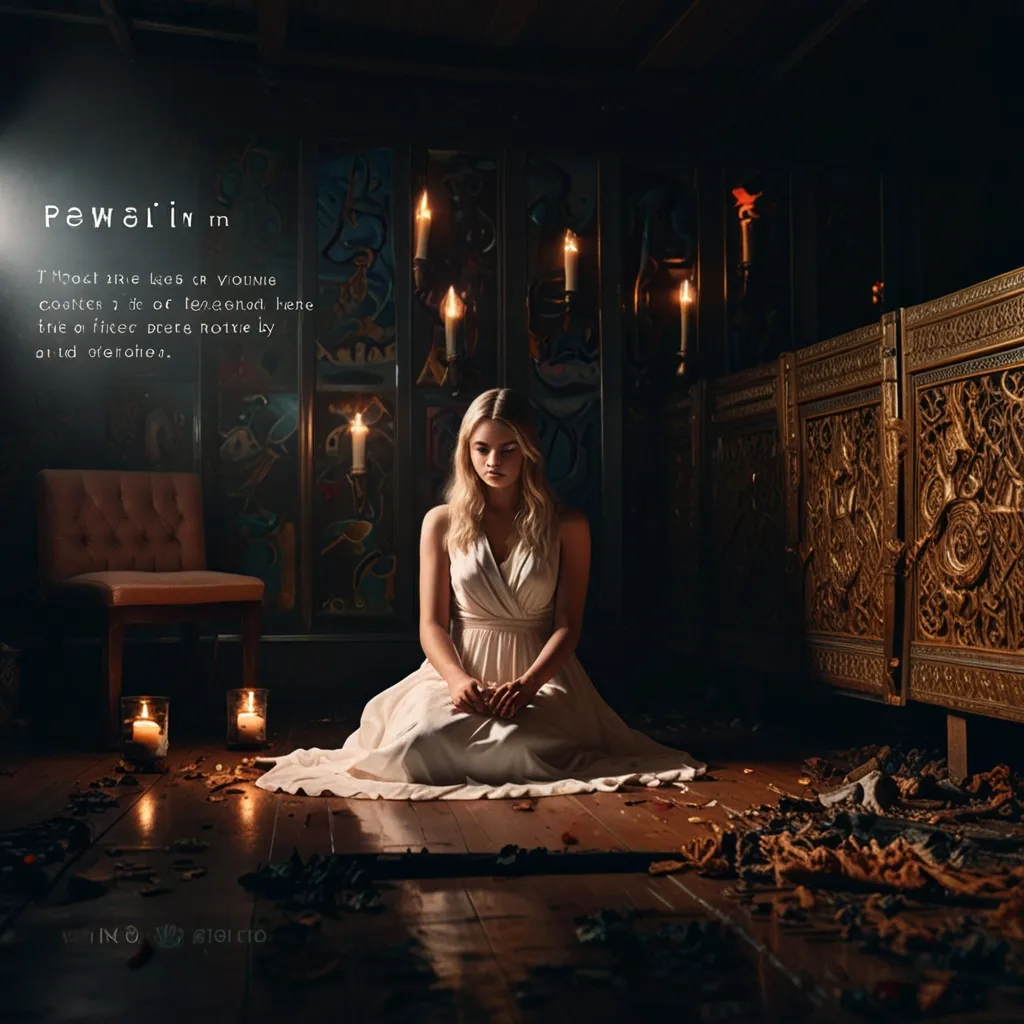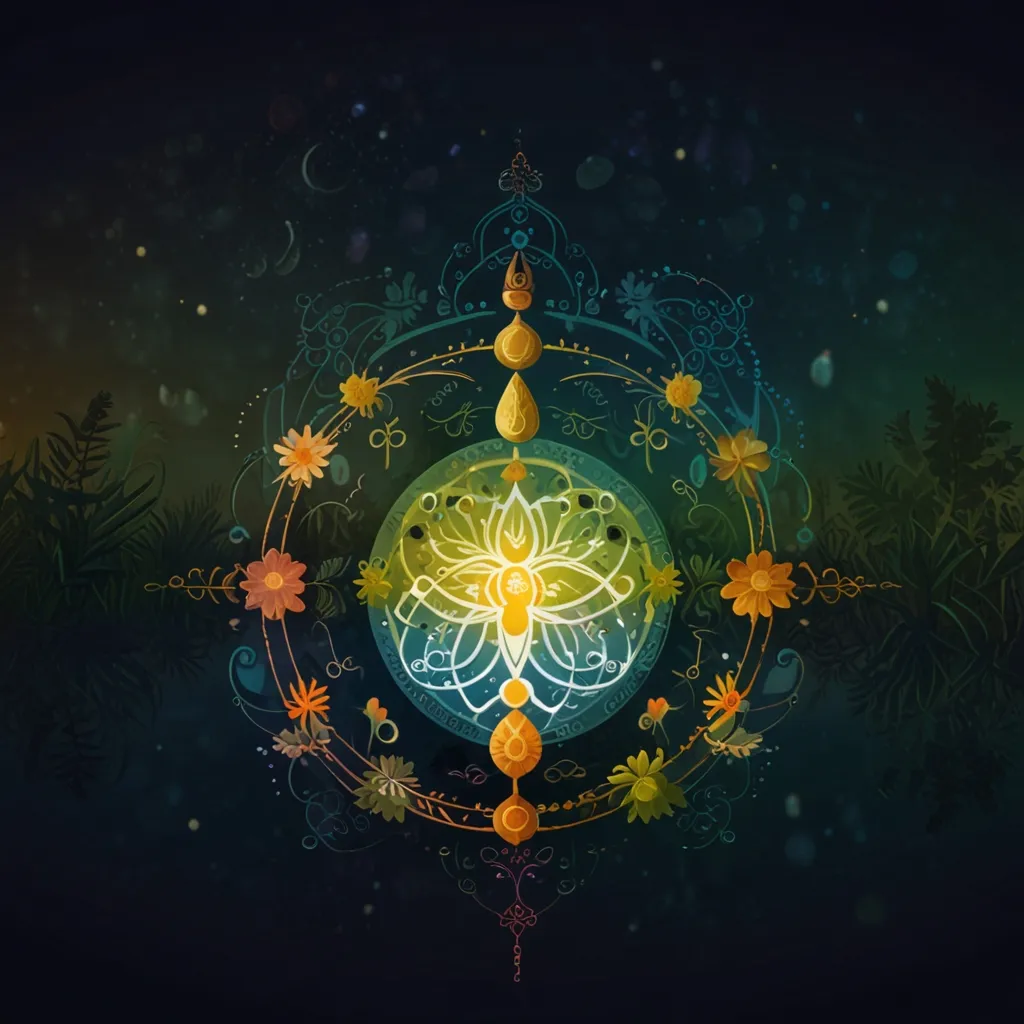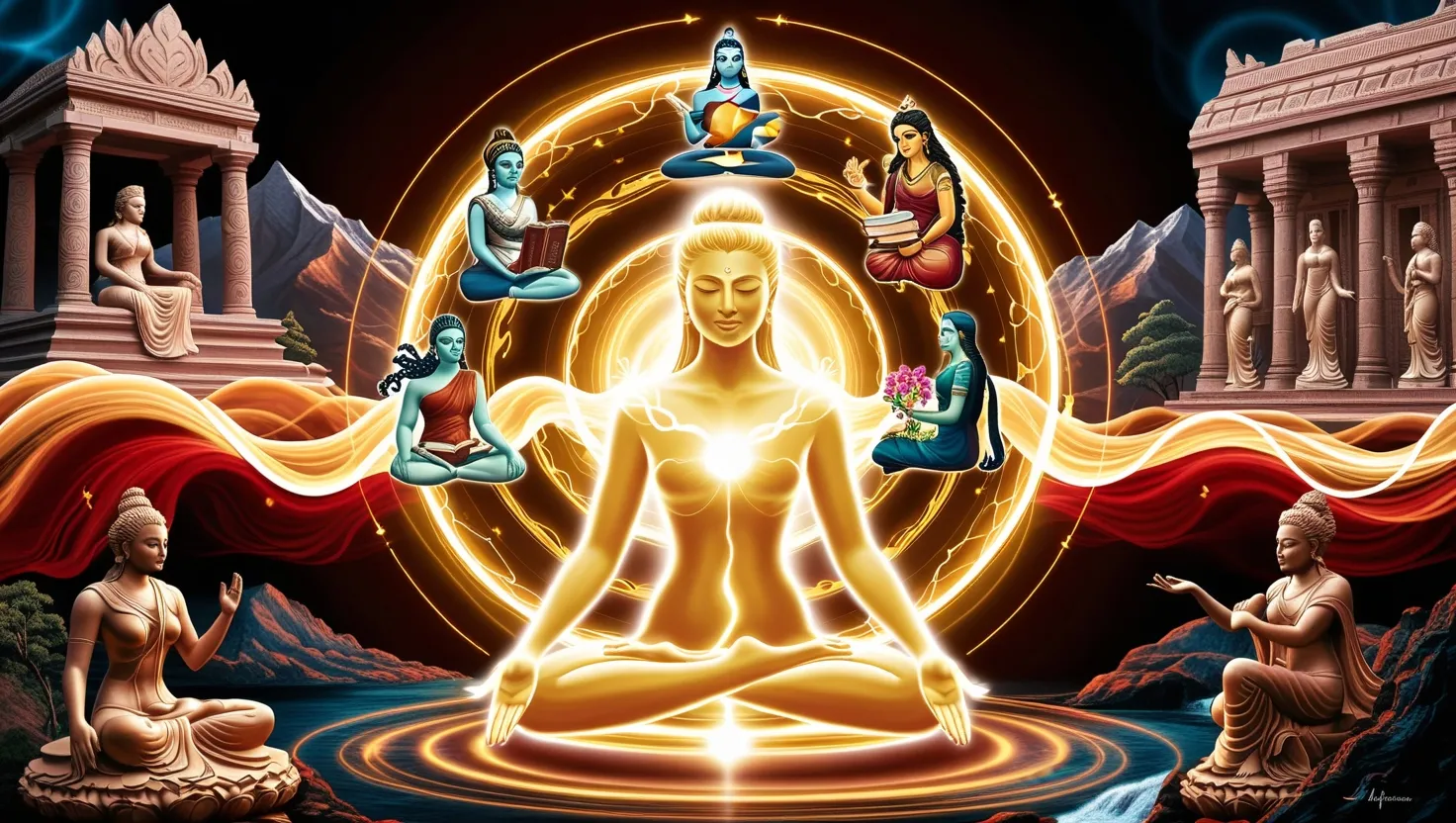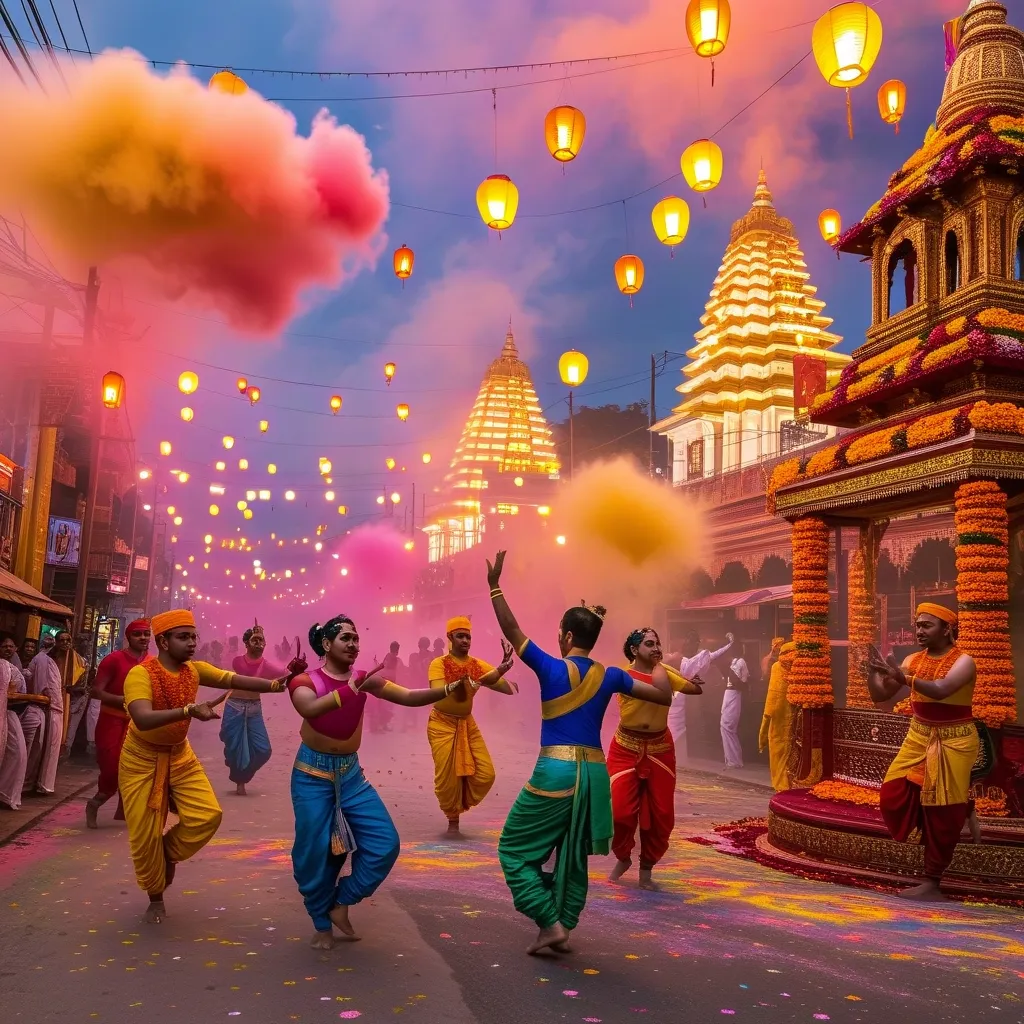The Cosmic Dance: Ancient Hindu Wisdom Meets Modern Science
Have you ever wondered if our ancestors knew more than we give them credit for? Well, buckle up, because we’re about to take a mind-bending journey through time and space, where ancient Hindu wisdom and cutting-edge science collide in the most unexpected ways.
Let’s start with a bang - the Big Bang, to be precise. You’d think this theory was cooked up in some fancy lab, right? Wrong! Hindu mythology was way ahead of the game with its concept of the Brahmand, a cosmic egg from which the universe emerged. It’s like they had a crystal ball or something!
But wait, there’s more! The Hindu texts talk about the universe going through cycles of creation and destruction. Sound familiar? It’s eerily similar to modern theories about the universe’s potential fate, like the Big Crunch. It’s as if those ancient sages were cosmic fortune-tellers!
Now, hold onto your hats, because this is where it gets really wild. Ever heard of the multiverse theory? Well, guess what? The Bhagavata Purana was dropping hints about multiple universes long before it became a staple of sci-fi movies. They described “innumerable universes” moving about “like atoms in you.” Mind. Blown.
And let’s talk numbers for a sec. The Hindu concept of yugas, or ages, describes a cycle lasting about 4.32 billion years. Now, here’s the kicker - that’s freakishly close to the scientific estimate of Earth’s age at 4.5 billion years. Coincidence? I think not!
But it’s not just about big cosmic ideas. Hindu philosophy has some pretty deep thoughts about the nature of reality itself. They believed that the physical world is transient and will eventually fade away. Fast forward to modern physics, and we’ve got theories suggesting that even the most stable particles might eventually vanish. It’s like the ancient Hindus had a sneak peek at the universe’s ultimate fate!
Let’s dive deeper into the rabbit hole. The Hindu concept of Nirguna Brahman - an intangible, omnipresent reality underlying everything - sounds a lot like some modern theories about consciousness being a fundamental aspect of the universe. It’s as if those ancient thinkers were cosmic philosophers way before it was cool.
Now, you might think all this cosmic stuff is great, but what about good old-fashioned math and science? Well, hold onto your abacus, because ancient Hindu texts were packed with mind-boggling mathematical and astronomical concepts. We’re talking numbers as high as 10^12, geometric constructions, and detailed astronomical calculations. These guys weren’t just stargazing - they were star-charting!
And let’s not forget the Vaisheshika school of atomism. These folks were theorizing about indivisible, eternal atoms way back in the 1st millennium BCE. Talk about being ahead of the curve!
But wait, there’s more! Ever wondered who came up with the concept of zero? Or negative numbers? Or the law of signs in multiplication? Yep, you guessed it - ancient Indian scholars. They were doing advanced math while the rest of the world was still figuring out how to count sheep!
And get this - a musical theorist named Pingala accidentally stumbled upon the Pascal triangle and binomial coefficients while working on prosody. It’s like he tripped and fell into a mathematical goldmine!
Now, let’s take a moment to appreciate the Upanishads. These ancient texts aren’t just spiritual mumbo-jumbo - they offer insights that align surprisingly well with modern scientific understanding. They describe a substratum beneath the tangible world, an idea that’s not too far off from the concept of virtual particles in modern physics. It’s like they had a quantum physics textbook hidden away somewhere!
And we can’t talk about ancient Hindu wisdom without mentioning Ayurveda. This system of medicine isn’t just about herbal remedies - it explores the properties of matter, the origin of consciousness, and the intricate balance of the human body. It’s like they had their own version of WebMD, but way more sophisticated!
Now, here’s where things get really interesting. The integration of science and spirituality in Hindu thought is something we’re still grappling with today. The idea that science and religion address different questions and don’t overlap - what Stephen Jay Gould called “non-overlapping magisteria” - was already present in ancient Hindu epistemology. These guys were solving modern philosophical debates before they even existed!
Of course, we’ve got to take some claims with a grain of salt. Stories about ancient Indian texts predicting NASA’s space propulsion techniques? Probably more myth than fact. But hey, it shows just how imaginative and forward-thinking these ancient thinkers were. They were dreaming big before dreaming big was even a thing!
So, what’s the takeaway from all this? Well, it turns out that the human quest for knowledge is timeless. Whether we’re talking about the origin of the universe, the nature of consciousness, or the transient nature of physical reality, ancient Hindu texts offer insights that are both profound and surprisingly prescient.
It’s a reminder that curiosity and the pursuit of knowledge are universal human traits. Our ancestors weren’t just sitting around waiting for the internet to be invented - they were asking big questions, making observations, and coming up with theories that still resonate today.
In the end, the harmony between ancient Hindu wisdom and modern scientific discovery is more than just a cool coincidence. It’s a testament to the power of human imagination and intellect. It shows us that the big questions we’re grappling with today - about the nature of reality, consciousness, and the universe itself - have been on our minds for millennia.
So the next time you’re pondering the mysteries of the universe, remember - you’re part of a long, rich tradition of human inquiry. Who knows? Maybe in a few thousand years, future civilizations will be marveling at how our “primitive” 21st-century ideas anticipated their advanced understanding of the cosmos.
In the meantime, let’s keep asking questions, exploring ideas, and marveling at the wonders of the universe. After all, that’s what our ancestors did - and look where it got us!
